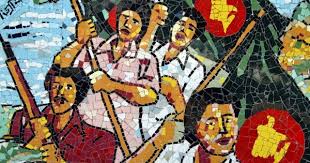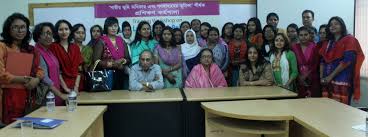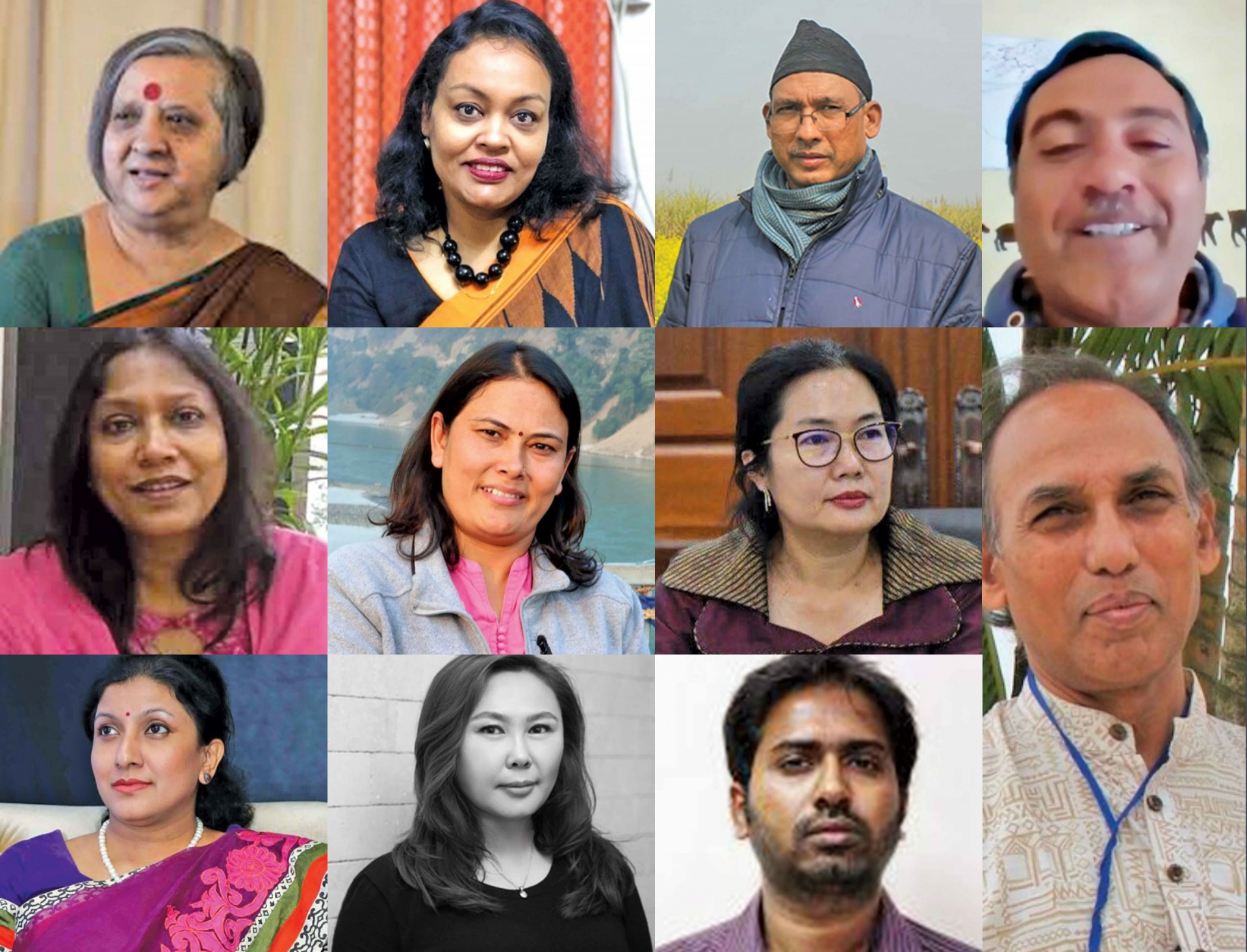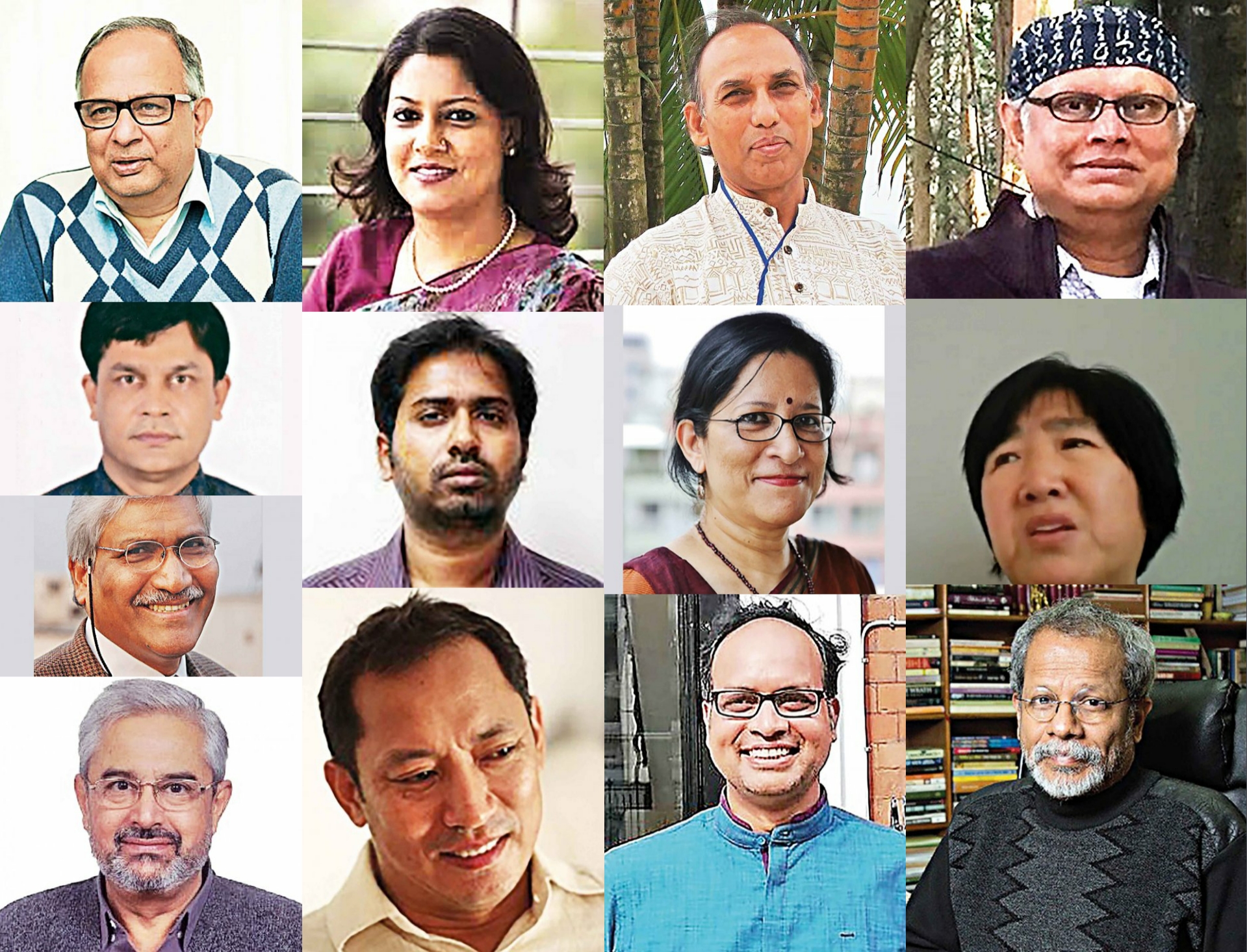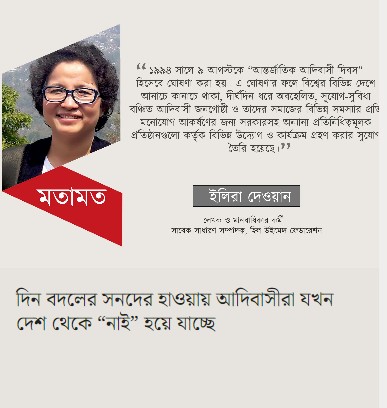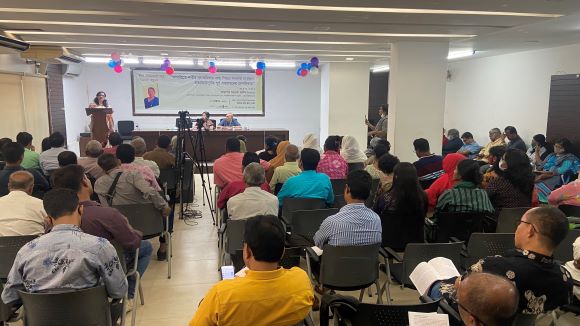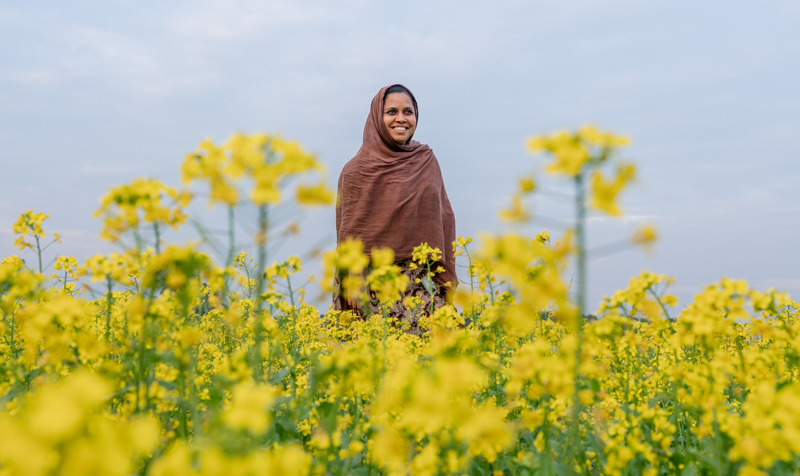
Khushi Kabir, Chairperson, ALRD and Coordinator, Nijera Kori
The issue of women's contribution to agriculture as well as access to land is a crucial issue but it is not given proper recognition. Women play a huge role in agriculture, be it the cultivation of land or processing of the produce or even in households.
Globally, women own very little land compared to men and with the ongoing COVID-19 pandemic, this issue has become all the more important to be addressed.
We need to change our perception of women's role in the work that they are doing, especially in production in rural areas. Women contribute so much but do not gain recognition. Women's roles in agriculture are rarely represented in reports. New policies and legal recognition on paper is not sufficient; there has to be proper implementation. We are from a culture that does not value women, so we must find a way to change the mindset of the society itself.
Bangladesh is on the brink of preparing its eighth Five Year Plan and this is a timely opportunity to incorporate a separate section for women.Creating a new bank for rural women in agriculture entails a bureaucratic process, and would be problematic and time-consuming since the banking sector is going through a difficult time. I would suggest influencing existing banks to reserve separate windows for rural women in agriculture, so they receive the financing required to produce as much as they need.
Getting women parliament members interested in this cause will create a strong force to raise these issues in parliament. We need to be heard, and we need to be taken seriously. We have to be recognised. There must be meaningful changes in our mindsets, actions, policies, and laws. Bangabandhu Sheikh Mujibur Rahman has always emphasised on agriculture, land reform, and land rights. That is the Bangladesh he had dreamt of.

Dr.Sanzida Akhter, Associate Professor and Chairman, Department of Women and Gender Studies, Faculty of Social Sciences, University of Dhaka
Women constitute almost 60 percent of the agricultural labour in Bangladesh. Their contribution is well-known but they still have not gotten official recognition as farmers. As a result, they also do not have access to the various services that they are deserving of. COVID-19 has worsened this overall economic condition of Bangladesh, putting women farmers in further jeopardy in terms of their economic and social status and food security.
We carried out a mixed-method study to assess the current situation of women farmers in four locations which include Rangamati, Sunamganj, Pabna, and Dinajpur. A wide range of areas were chosen to bring regional variation and capture perspectives of the indigenous communities and of people living in haor and plain land areas. This study has revealed that in terms of women's contribution to agricultural work, they are always labelled as "assistants''. Their involvement in agricultural work is also associated with lower socio-economic status. Women with upper social status are expected to be completely detached from agricultural activities.
In crop production, we have noticed that women, on average, contribute more hours than men in the harvesting and post-harvesting processes. A similar pattern is seen in the participation of women raising livestock.
Men are thought to be more involved in the fishing sector. But our quantitative data shows that in terms of caretaking, women are equal participants. Women contribute by making and repairing nets, organising the tools and equipment before fishing, preparing and clearing fish after catching, and processing them. Processing local dry fish is completely done by women but they neither have the ownership of this business nor recognition from family members, community, or administration.
Women's activities in crop production, on average, contribute to 48 percent of the financial needs of the family which is also supplemented by involvement in raising livestock, fisheries, and homestead gardening.
Women's income and involvement in agriculture work remain absent in the Gross Domestic Product (GDP) of Bangladesh. Accounting for women's involvement in the agricultural sector, whether formal or informal, or productive or reproductive, would boost the country's per capita income as well as women's status in the country. The study found a stark picture of inequality in terms of women's access to government-led agricultural services and credit in comparison with their male counterparts, in all the four districts.
Women's limited access to farmers' cards not only denies women the access to a wide range of agricultural services, but also depicts the policy level failure to give women farmers the due recognition they deserve.
Our study also found that women farmers were paid less but none of the respondents were able to provide any reason as to why this inequality in payment existed.
The idea should not be to allow more women to have access to the existing structure but to completely revise and restructure the existing infrastructure to make it women-friendly.

Rowshan Jahan Moni,
Deputy Executive Director, ALRD
In Bangladesh, property rights of women and girls fall mainly in the domain of family laws. Most of the family laws including Muslim and Hindu inheritance laws are discriminatory against women. Rules and procedures of khas (public) land distribution also often disempower women. As per Khas land management and distribution policy, single women and widows are not eligible to apply for khas land unless they have "an able-bodied son". Only 15.8 percent of rural land is owned by women; while one-fourth of that land is effectively controlled by them. The ownership ratio of water-bodies by women is also very insignificant. Women farmers constitute 72.6 percent of the total agricultural labour force but they are not recognised as farmers.
Moreover, Bangladesh is a signatory to several international conventions and covenants such as the Convention on the Elimination of All Forms of Discrimination against Women (CEDAW) and the International Covenant on Economic, Social and Cultural Rights (ICESCR). Unfortunately, the reports for all these international covenants are not always submitted regularly and often capture only the achievements and not the targeted actions. Data gap in the reports is a stumbling block in measuring progress. Women's rights and women's land rights are correlated issues and should be persuaded through these instruments.

Vidya Bhushan Rawat,
Founder and Director, Social Development Foundation, Delhi, India
We conducted a study on women's land rights issues in India, Nepal, Bangladesh, Cambodia, and Indonesia. We observed that in all these countries, around 15 to 20 percent women own properties but despite having land under their names, most cannot effectively access it due to cultural biases in the caste system.
Property rights or their lack thereof form the basis of violence against women. In rural India, women do not have access to ancestral properties and therefore in the case of a divorce, she is left completely powerless. Although laws have been amended, in joint families, the agrarian properties are still passed on to the males in the families.
Women belonging to minority groups, such as indigenous and Dalit women face further prejudices. The mainstream women's rights movements need to be more vocal about the issues of these marginalised women. Women from these groups also need to be provided with the platform to voice their concerns. Women's leadership needs to be diverse and consist of women from various social and cultural backgrounds.
Through our studies, we found that in most of these countries the personal laws guiding the families usually supersede the civil laws imposed by the government. During the COVID-19 situation, the women belonging to the labour class faced severe difficulties; they have been unable to receive even basic healthcare services due to the ongoing pandemic.
At present, there is a huge inequality in wages among males and females in the unorganised agrarian sector. With time, we see this inequality increasing due to the economic downturn. It is the duty of the civil society and the media to focus on these real issues and work jointly.

Kalpana Karki,
Campaign Manager, Community Self-Reliance Centre (CSRC), Kathmandu, Nepal
In our constitution, we have a provision for the elimination of discrimination based on class, caste, religion, language, and gender. According to Article 18, we have the right to equality.
There is a provision stating both spouses shall have equal rights in property and family affairs. 19.71 percent women have ownership over land and houses. 10,118 couples have acquired Joint Land Ownership (JLO) Certificates covering an area of 2779.01 hectares of land.
Guidelines of JLO have been approved by the federal level Ministry of Land Reform, Cooperatives and Poverty Alleviation. Based on this provision, we are advocating for the local government to include this JLO provision in their programmes and policies. It has provided a strong basis in taking the land rights movement forward, linking it with human rights, economic security, and social justice for women. Women's land entitlement has enhanced women's economic power, socio-economic security, social dignity, and political participation.
Some challenges include implementing pro-women policy provisions, the absence of disaggregated data, and the COVID-19 situation, which has impacted women's mobility and participation in claiming their land rights. COVID-19 has also reduced women's linkages to the market to sell farm products and made them vulnerable to economic insecurity.
Land Issues Resolving Commission (LIRC) is mandated to solve landlessness and informality of land tenure. It will ensure tenure security of around 1.4 million people. While providing land certificates, it will issue JLO. There is a special provision for grant support to women farmers to help them recover from the losses due to the pandemic.
We should hold extensive debates and discussions on daughters' ownership rights to ancestral property and emphasise on implementing existing policies such as JLO and advocate for gender-friendly policies. There needs to be more emphasis in implementing existing policies through collaboration with the government bodies at federal, provincial, and legal level.

Chet Charya,
Director, Star Kampuchea, Cambodia
Women's access to land and agricultural rights in Cambodia remains a challenge due to limited law enforcementand opportunities. Agriculture is the backbone of Cambodia's economy, contributing 23.5 percent to the GDP. There is a lack of farmers' access to credit because banks give limited loans to low-income farmers. There is a lack of women in decision-making, even though the land law provides equal ownership rights to all genders. The economic impact of COVID-19 on Cambodia is enormous, affecting women in particular. Even though agricultural inputs are high, access to credit and market is still challenging for smallholder farmers, especially women, indigenous peoples, and other vulnerable groups. Access to food and nutrition security are also areas of concern.
The government of Cambodia has allocated two billion dollars for the economic response to the pandemic. There are more than one hundred million dollars to support farmers in the form of cash transfer and agricultural inputs. The United Nations in Cambodia and development partners have repurposed their strategy for economic recovery after the pandemic. The government, led by the Ministry of Economy and Finance, has prepared the Economic Recovery Strategy to be implemented by UN agencies and development partners to support farmers beyond the COVID-19 crisis. Civil society organisations (CSOs) are also repurposing their plans toward supporting farmers during and beyond the COVID-19 situation. Development partners provide support to CSOs and communities to raise awareness on COVID-19 prevention.

Dr Nazneen Ahmed,
Senior Research Fellow, Bangladesh Institute of Development Studies (BIDS)
While advocating for land rights, we should also demand a supportive environment to help women move forward. Data from focus group discussions with women in agriculture from eight different districts of Bangladesh showed that even though women did not have inheritance rights on land, their involvement in agriculture allowed them to generate income and buy their own land. Crop insurance helped them overcome harvest risks. Therefore, if women can be linked to the value chain, they can grow and have their own resource base. Another claim was that people hold a misconception that not many women participate in agriculture. This is untrue since the only time that women do not participate is during the rainy season. Advocacy for changes in policies are important, but in the meantime other supporting factors should be identified and facilitated.

Dinesh Desai,
Director, Maldhari Rural Action Group (MARAG), Ahmedabad, India
Almost 26 percent of women have lost their jobs due to the pandemic. In Bangladesh and India, 85 to 90 percent women are unpaid workers in agriculture. A change in mindset is required to accept that women can also be farmers, livestock keepers, fisherfolk, etc. Livestock keepers and farmers faced enormous mobility challenges during the shutdown, in terms of entering the market, livestock keeping, and migrating between districts or countries. These people are fighting climate change and only working in small groups, yet the government is restricting their mobility.
The role of women is restricted to the production system as labourers. The wages of women should be looked into. In India, the private sector is involved in cotton farming, which is affecting women's respiratory health as well as the air quality. Women are usually unable to bargain for their agricultural products. Therefore, women should be included in decision-making roles.

Mirgul Amanalieva,
Asia Regional Coordinator, International Land Coalition (ILC)-Asia, Indonesia
The pandemic has increased the challenges faced by women farmers manifold. There is an urgent need to put all our efforts into strengthening women's land rights in every sector. In Kyrgyzstan, more than 64 percent of women live in rural areas. They are essential to rural development and the economy. They account for a significant portion of the agricultural labour force, play a crucial role in food production, especially subsistence farming, and do most of the unpaid work in rural areas. Even though Kyrgyz law provides women and men with equal ownership and rights to property regardless of their marital status, through customary laws and traditions, men are more likely to inherit and own land and property. As a result, women are asset poor, without ownership or property rights. There is room for growth and for us to bring more attention to women's land rights.

Shamsul Huda,
Executive Director, ALRD
Studies have shown that women are major actors in every sphere of agriculture, including livestock and fisheries. The non-recognition of women's contribution to agriculture and in society as a whole is a big issue. Women facing discrimination in terms of land ownership, control and market access, and in every other sphere of society, is, unfortunately, a common occurrence in the South Asian region. For decades, there has been wage discrimination between male and female day labourers. Restructuring of agricultural policies and management is required. The entire societal structure should be reviewed and restructured. Since land and agricultural issues are regional, it is essential to have a regional strategy, coordination, and cooperation.
Women in rural areas who are engaged in agriculture or other economic activities do not qualify for bank loans. Therefore, they have to obtain loans from the microcredit programmes of NGOs and CSOs. These loans, in many cases, are not agriculture-friendly. Their service charge and interest are much higher than that of bank loans. Women should have access to formal credit from banks. A separate bank should be established for rural women in agriculture, including fisheries and livestock. These banks should be women-friendly, collective farming friendly, and gender justice friendly.
Almost all countries in the region have provisions that state that men and women have equal access and property rights, but discriminatory laws still exist. We need to do away with these discriminations. To achieve this end, we must fight together, collaborate, cooperate, and learn from each other.

Shamsuddoza Sajen,
Commercial Supplements Editor, The Daily Star & Moderator of the Session
We are aware that women play a significant role in agriculture but they do not have secure land tenure and property rights. Even in countries where women constitute the majority of the agricultural workforce and contribute more than 70 percent of the agricultural work, we see that they are still routinely denied the right to own the very land they cultivate. These women are not even given recognition as farmers. In Asia, the percentage of land owned by women is very low. In India, this percentage is only 28.3 percent; in Indonesia, it is 23 percent; in Nepal, it is 19.9 percent; and in Bangladesh, it is only 13 percent.
Women farmers continue to be classified by the state as unpaid family helpers rather than independent cultivators and decision-makers. The main reason leading to this scenario is the patriarchal mindset of Asian society. Therefore, the issue of women's access to land remains at the margin of any development agenda.


